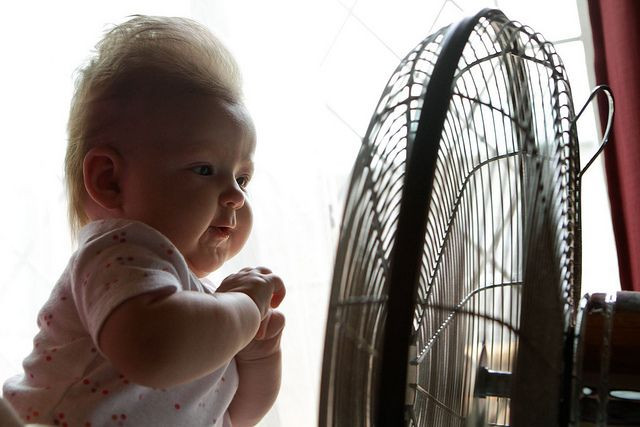Electric Fans: Good or Bad?

With a new heat wave rapidly approaching, doctors, researchers and scientists alike are all proposing ways to beat the heat safely. New research suggest electric fans may not be the healthiest way to maintain your cool.
According to the Center for Disease and Control and Prevention (CDC), heat waves are one of the most fatal weather-related risks in the U.S. They account for more deaths than other climate conditions such as tornadoes, hurricanes, floods and earthquakes combined. Heat waves also increase health risk such as a heat stroke.
In light of the 46 deaths across the nation due to heat waves this summer alone and the 30,000 that occurred in Europe during August 2003, The Cochrane Review by Gupta set out to generate substantial evidence determining the effect electric fans may have on one’s health.
The Cochrane Review found there is inconclusive evidence to support whether or not electric fans may cause an adverse effect on one’s health. Through the assistance of independent review authors and the analysis of published and unpublished works regarding electric fans, data does not resolve uncertainties about the health effects of electric fans during heat waves.
There still remain physicians who believe in the adverse effects of the electric fans because it is said when temperatures are above 35 degree Celsius (95 degree Fahrenheit) the fan may lead to an increase in heat gain. Though there are no concrete evidence, it is believed a fan that blows out excessive hot air on an already hot body, can increase one’s chances of dehydration and other health problems.
The Cochrane Review states people who make decision regarding an electric fan should bear in mind local policies and guidelines when making their purchase.
Here are warning signs that suggest heat exhaustion:
- Heavy sweating
- Paleness
- Muscle cramps
- Tiredness
- Weakness
- Dizziness
- Headache
- Nausea or vomiting
- Fainting
Here are steps you can take to avoid heat exhaustion:
- Drink cool, nonalcoholic beverages.
- Rest.
- Take a cool shower, bath, or sponge bath.
- Seek an air-conditioned environment.
- Wear lightweight clothing.
For more information regarding this study visit The Cochrane Library.



























